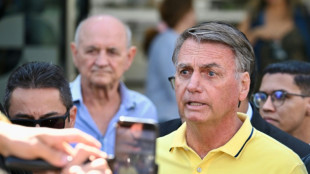
-
 Marc Marquez coasts to seventh successive victory in Hungary
Marc Marquez coasts to seventh successive victory in Hungary
-
Arteta backs Eze to create 'magic moments' at Arsenal

-
 US envoy visits Ukraine on independence day as peace efforts stall
US envoy visits Ukraine on independence day as peace efforts stall
-
Bangladesh and Pakistan bolster ties but war apology 'unresolved'

-
 Rowe signs for Bologna after Marseille bust-up
Rowe signs for Bologna after Marseille bust-up
-
Three tons as record-breaking Australia crush South Africa

-
 France's regulator says unable to block dead streamer's channel
France's regulator says unable to block dead streamer's channel
-
UK vows to speed up asylum claims as hotel protests spread

-
 Head, Marsh, Green hit centuries as Australia make 431-2 in 3rd South Africa ODI
Head, Marsh, Green hit centuries as Australia make 431-2 in 3rd South Africa ODI
-
Pujara announces retirement from Indian cricket

-
 Bird call contest boosts conservation awareness in Hong Kong's concrete jungle
Bird call contest boosts conservation awareness in Hong Kong's concrete jungle
-
Kneecap to play Paris concert in defiance of objections

-
 Indonesian child's viral fame draws tourists to boat race
Indonesian child's viral fame draws tourists to boat race
-
Australian quick Morris out for 12 months with back injury

-
 Son scores first MLS goal as LAFC draw 1-1 with Dallas
Son scores first MLS goal as LAFC draw 1-1 with Dallas
-
India's Modi dangles tax cuts as US tariffs loom
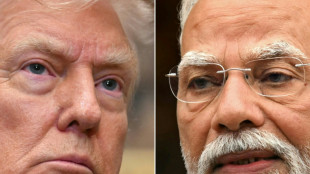
-
 Indonesia turns down ear-splitting 'haram' street parties
Indonesia turns down ear-splitting 'haram' street parties
-
North Korea test-fires two new air defence missiles: KCNA

-
 Sinner, Sabalenka chasing rare repeats as US Open gets underway
Sinner, Sabalenka chasing rare repeats as US Open gets underway
-
Venezuela rallies militia volunteers in response to US 'threat'
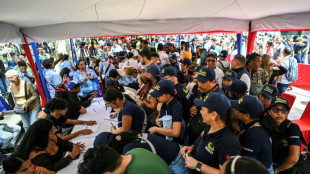
-
 Musk's megarocket faces crucial new test after failures
Musk's megarocket faces crucial new test after failures
-
UK's mass facial-recognition roll-out alarms rights groups

-
 Home hope Henderson, Aussie Lee share Canadian Women's Open lead
Home hope Henderson, Aussie Lee share Canadian Women's Open lead
-
Fucsovics holds off van de Zandschulp for ATP Winston-Salem crown

-
 Fleetwood, Cantlay share PGA Tour Championship lead
Fleetwood, Cantlay share PGA Tour Championship lead
-
Argentina stun All Blacks with historic 29-23 upset win

-
 France begin Women's Rugby World Cup with hard-fought win over Italy
France begin Women's Rugby World Cup with hard-fought win over Italy
-
Barca complete late comeback win as Atletico drop more points in Liga

-
 Alcaraz targeting 'unbelievable' Sinner at US Open
Alcaraz targeting 'unbelievable' Sinner at US Open
-
Swiatek plays down favorite status ahead of US Open

-
 De Bruyne strikes in Napoli's strong start as Modric's Milan sank by Cremonese
De Bruyne strikes in Napoli's strong start as Modric's Milan sank by Cremonese
-
Springboks back in contention after win - Erasmus

-
 Cirstea downs Li to claim WTA Cleveland crown
Cirstea downs Li to claim WTA Cleveland crown
-
Nigeria says killed over 35 jihadists near Cameroon border

-
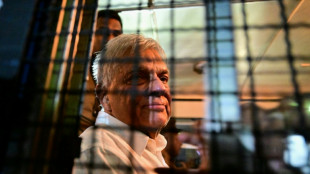 Sri Lanka ex-president rushed to intensive care after jailing
Sri Lanka ex-president rushed to intensive care after jailing
-
Russia claims more Ukraine land as hopes for summit fade

-
 Atletico still without Liga win after Elche draw
Atletico still without Liga win after Elche draw
-
Schell shock as six-try star leads Canada to 65-7 World Cup hammering of Fiji

-
 Gyokeres scores twice but injuries to Saka, Odegaard sour Arsenal rout of Leeds
Gyokeres scores twice but injuries to Saka, Odegaard sour Arsenal rout of Leeds
-
Man City revamp rocked by Spurs, Arsenal thrash Leeds

-
 Gyokeres scores twice as Arsenal rout Leeds
Gyokeres scores twice as Arsenal rout Leeds
-
De Bruyne strikes in Napoli's strong start to Scudetto defence at Sassuolo

-
 Seoul says fired warning shots after North Korean troops crossed border
Seoul says fired warning shots after North Korean troops crossed border
-
McGhie the hat-trick heroine as Scotland overwhelm Wales in Women's Rugby World Cup

-
 'It's in my DNA': Williams relishes US Open return at 45
'It's in my DNA': Williams relishes US Open return at 45
-
Portugal suffers new wildfire death as Spain beats back blazes
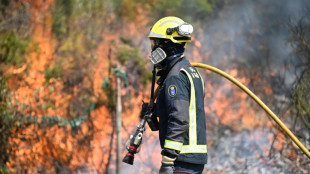
-
 Pollard steers Springboks to victory over Wallabies
Pollard steers Springboks to victory over Wallabies
-
Aubameyang stars as Marseille end chaotic week on five-goal high

-
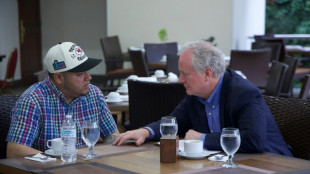 US govt wants migrant targeted in crackdown deported to Uganda: lawyers
US govt wants migrant targeted in crackdown deported to Uganda: lawyers
-
Man City revamp rocked by Spurs, Villa beaten at Brentford


The 'predatory' global economy of looted antiquities
The charging of the Louvre's former director in an antiquities trafficking investigation has shone a light on a vast, transnational criminal problem that remains fiendishly difficult to target.
Ancient burial grounds around the world have increasingly become "open-air supermarkets" for everyone from petty thieves to organised criminals, said Vincent Michel, professor of archaeology at the University of Poitiers in France.
He describes a "sophisticated chain" stretching from sites in unstable places such as Iraq, Syria and Libya -- but also many other parts of the world -- via transit countries to auction houses and private collectors in Europe and the United States, and increasingly Asia and the Gulf.
It is an illicit trade that "serves mafias, drug traffickers and terrorist groups, abusing collectors and museums with complete impunity", said Michel.
The ex-director of the Louvre in Paris, Jean-Luc Martinez, was charged last week over the purchase of a pink granite stele depicting the pharaoh Tutankhamun and four other historic works for eight million euros ($8.5 million) by the museum's branch in Abu Dhabi.
Martinez, who has strongly denied any wrong-doing, is accused of turning a blind eye to fake certificates of origin for the pieces, a fraud thought to involve several other art experts, according to French investigative weekly Canard Enchaine.
Such allegations are far from a rarity in the art world where the value of looted antiquities is thought to reach into the "tens or even hundreds of millions of euros" per year, according to Michel.
He trains police, judges and customs officials to help counter the trade but resources are notoriously limited in the sector, and he has called for deeper public awareness and a more concerted interdisciplinary fight.
"This transnational crime feeds a predatory economy that undermines our national security. It is also an irreversible attack on heritage because a looted object, taken out of its context, loses all scientific value," Michel said.
- Global reach -
The Covid-19 pandemic has only deepened the challenge.
Egyptian authorities say the number of illegal digs jumped massively in recent years to hit 8,960 in 2020.
Looters use metal detectors to hunt gold, silver and bronze items, often stored in perfect condition in tombs thanks to the arid climate.
But the problem is not limited to poorer countries.
France has seen an uptick in looting from archaeological sites, said Xavier Delestre, who works for the regional cultural authorities based in Marseilles.
He said high-value items were often laundered through so-called "freeports" -- tax haven storage sites with minimal oversight in places like Geneva, Luxembourg and Singapore -- emerging with false back-stories.
Lower-value items ended up on social media and online stores.
- 'Almost undetectable' -
Michel said counterfeiters are "incredibly ingenious" when it comes to masking the illicit origin of items, creating documents with a careful mix of false and true information, fabricating false export permits or purchase invoices -- even UNESCO certificates.
Once reintroduced into the legal market, "a looted item is almost undetectable," he added.
Internet sales have made it even harder for law enforcement officials to trace criminals and keep a handle on the problem.
A 2019 report by US counter-trafficking organisation ATHAR tracked 95 Arabic-language Facebook groups specialising in antiquities trafficking, with a total of nearly two million members.
"Facebook offers a veritable digital toolbox for traffickers to utilise, including photo and video uploads, live streaming, disappearing 'Stories', payment mechanisms, and encrypted messaging," the report said.
H.Seidel--BTB

